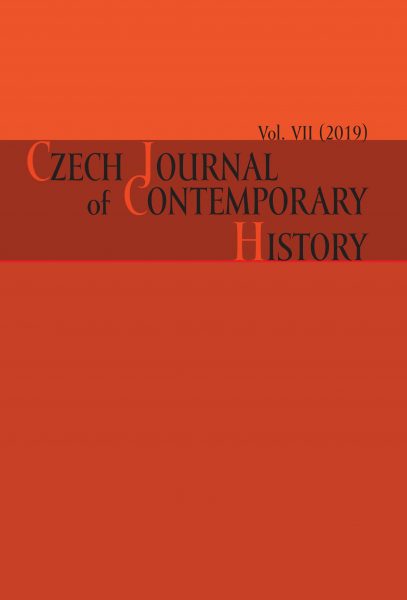Cleansing of Industrial Plants from Collaborationists and “Anti-Social” Elements in 1945. A Political Machination, Retribution Excess or an Incubator of Revolutionary Morals?
Cleansing of Industrial Plants from Collaborationists and “Anti-Social” Elements in 1945. A Political Machination, Retribution Excess or an Incubator of Revolutionary Morals?
Author(s): Jakub ŠloufSubject(s): Political history, Social history, Recent History (1900 till today), History of Communism
Published by: AV ČR - Akademie věd České republiky - Ústav pro soudobé dějiny
Keywords: Cleansing of Industrial Plants; Collaborationists and “Anti-Social” Elements in 1945; Political Machination; Retribution Excess; Incubator of Revolutionary Morals;
Summary/Abstract: Using results of extensive research in central and company archives, the author studies the cleansing of industrial plants from collaborationists and so-called anti-social elements in Czechoslovakia in 1945. He describes it as a standard-setting process during which the form of a new revolutionary value system and guilt criteria in relation to the occupation past arising there from were negotiated and established in practice in factories and plants. Both escalated nationalism and social egalitarianism, sometimes developing into class antagonism, found their use in it. In addition to acts prosecuted under official legislation, the cleansing process incorporated various minor conflicts of employees during the occupation, in particular disputes between subordinates and superiors. For this reason, mainly top-ranking white collars, human resource officers, rate setters, and shop foremen were removed from their positions. The articulation of guilt of the above group also worked as an absolution of others, particularly rank-and-file workers and white collars, at the symbolic and psychological level. The selected guilt criteria were subsequently becoming a part of the legitimization pattern of the ongoing revolution. The study illustrates how company councils, acting through investigation commissions which, nevertheless, had to create their own legal rules as they had no position or status defined in official legislation, were trying, since mid-May 1945, to regulate, formalize, and unify initial spontaneous actions of employees. However, the legal uncertainty in factories led to a decline of respect to superiors, deterioration of working morale, and devaluation of expertise. In mid-July 1945, organs of the Revolutionary Trade Union Movement intervened into the cleansing process, as they were interested in improving the performance of the nationalized industry. Appeal chambers were established at regional trade union councils as second-instance bodies deciding disputes submitted by industrial plants. In doing so, they were demanding a higher quality of submitted legal documents and supporting assigning the individuals affected by the cleansing to adequate working positions in the production process. In October 1945, results of the company cleansing process were incorporated, under the pressure of trade unions, into official legislation under the so-called Small Retribution Decree. The resulting legal framework was thus an apparent compromise between pre-war legal conventions and moral criteria established during the May 1945 revolution.
Journal: Czech Journal of Contemporary History
- Issue Year: VII/2019
- Issue No: 7
- Page Range: 65-110
- Page Count: 46
- Language: English

